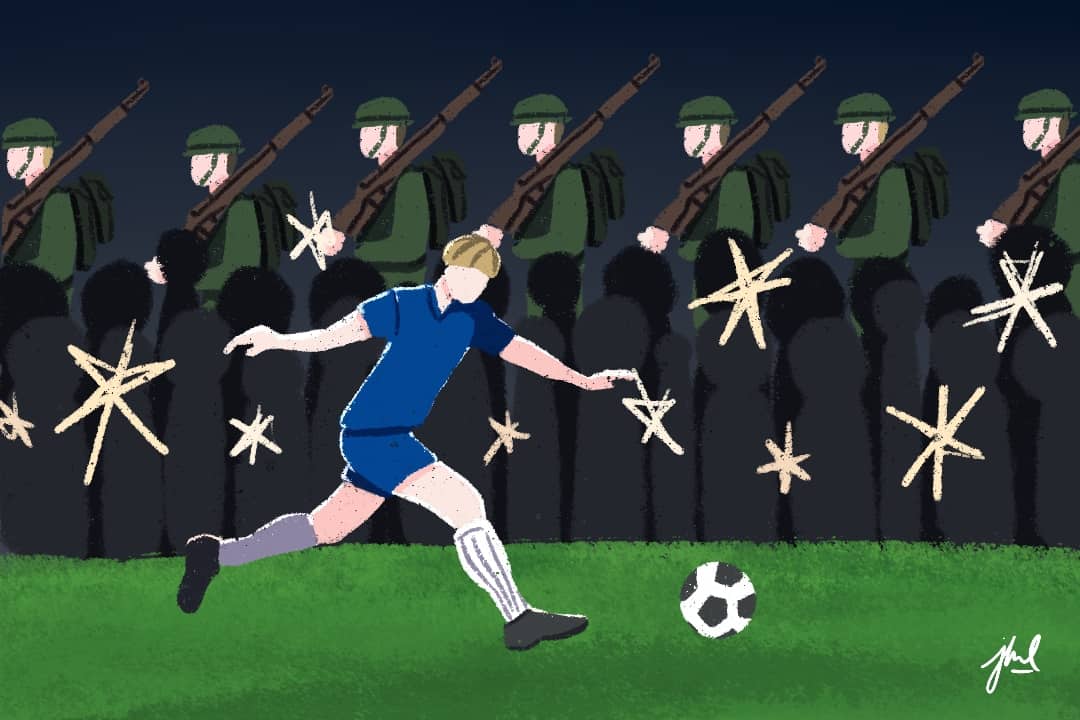In the summer of 2003, Russian billionaire Roman Abramovich acquired Chelsea Football Club (FC), a team that had not won a domestic title in 50 years, for 140 million pounds. Abramovich injected more than 1.5 billion pounds into Chelsea FC — which, as a result, has collected 21 trophies.
Now, 19 years later, Abramovich has sold Chelsea FC for a record 2.5 billion pounds, with the proceeds going to a foundation supporting Ukrainian victims of the war. Chelsea FC won the Champions League last year; therefore, it was not a lack of success that forced Abramovich out — it was war.
On February 24, 2022, Russia invaded Ukraine. Within hours, politicians in the British House of Commons accused Abramovich of having links to the corrupt activity in Russia and officially placed sanctions on him on March 10. As a result, Abramovich had his assets frozen. He was barred from selling the club for a while and Chelsea FC was restricted from signing new players or renewing existing contracts.
The government claims Abramovich is connected to the war because he has a 29 per cent ownership stake in Evraz, a steel manufacturing firm that the British government believes has supplied the Russian military. To add fuel to the fire, Abramovich and Putin have had a close relationship in the past.
Abramovich also enjoyed significant political influence in Moscow in the latter half of the 1990s, and in October 1999, Abramovich attended Putin’s birthday party. Soon after, Abramovich allegedly bought Putin a yacht worth 50 million USD. There is no doubt that much of Abramovich’s wealth was gained through dividends and the privatization of the former Soviet Union assets. When Putin became president in 2000, Abramovich helped shape the new government, allegedly handpicking members of Putin’s cabinet.
The well of Abramovich scandals goes much deeper. In 1995, he and his partner purchased a Russian oil company, Sibneft, for 250 million USD at an auction. One of his lawyers later admitted that the auctioning of Sibneft “was easy to rig and was rigged,” and many others also suspected that Sibneft was undervalued at the start, allowing the partners to obtain huge profits. In 2005, he sold that same company to state-run Gazprom for 13 billion USD. On top of that, Abramovich allegedly helped Russia successfully bid to host the 2018 FIFA World Cup, while also bankrolling Russia’s football union and the national team.
So, why did the Premier League not do anything for so long? The answer is money. Abramovich’s investment in Chelsea FC and the clear success it brought helped bring about massive growth for the Premier League. With his wealth, Abramovich brought more elite players to Chelsea FC and, in the process, ‘gentrified’ the Premier League. Abramovich’s investments forced other clubs to reinvest their money and take part in the newer and riskier business model of “financial doping,” to remain competitive.
Though, it shouldn’t be surprising that Abramovich is not the only immoral owner in the Premier League. Notably, in 2008, Manchester City FC was purchased by Sheikh Mansour bin Zayed Al Nahyan, the deputy Prime Minister of the United Arab Emirates (UAE), through the Abu Dhabi United Group. In 2018, Amnesty International condemned the UAE for unfair trials, the lack of freedom of expression, failing to investigate allegations of torture, discrimination against women, and abuse of migrant workers.
More recently in October 2021, Newcastle United FC was purchased by the Saudi Public Investment Fund, chaired by Crown Prince Mohammed bin Salman al-Saud. The Saudis plan to use their wealth to improve the severely underachieving club, much like Abramovich did for Chelsea FC.
As a matter of coincidence, Chelsea FC played Newcastle United FC soon after the start of the war. The day before the match, Saudi Arabia carried out a mass execution of 81 people. The crown prince is responsible for hundreds of civilian deaths during the air strikes in Yemen; the oppression of women; and the murder of journalists — most notably, the execution of the Washington Post journalist Jamal Khashoggi in 2018.
This is what many analysts refer to as ‘sportswashing’ — where actors of immorality use sports to rehabilitate their image. Many analysts use this term when describing the Winter Olympics in China earlier this year and the upcoming World Cup in Qatar. In 2013, Human Rights Watch argued that Mansour’s ownership of Manchester City FC helped “construct a public relations image of a progressive, dynamic Gulf state, [deflecting] attention from what [was] really going on in the country.” For Abramovich, sportswashing may not have been his intention when buying the club. Nevertheless, his ownership succeeded in rehabilitating his image.
Chelsea FC fans continued to stand by Abramovich during the early weeks of the war, chanting his name at a game against Newcastle United FC at Stamford Bridge in March. Graffiti done outside Stamford Bridge read, “EUROPE IS FUNDING THE WAR — NOT CFC” and “LEAVE OUR CLUB ALONE.”
For a long time, Chelsea FC loved Abramovich along with everyone else — and why wouldn’t they after all the success he’s brought them? As they say: if it works, stick with it . However, now that Abramovich’s ruse has been revealed to the world, people are not only wary of him themselves but also want his fans to be wary.
It is not that people are now just realizing Abramovich’s shady connections; people were aware of his background all along but preferred not to focus on that, just as they are doing now with Saudi Arabia’s ownership of Newcastle United FC.
Scrutiny aimed at Abramovich has to be projected onto other Premier League club owners with questionable human rights records. If it took a war to force Abramovich out, what would it take to force the others out?


